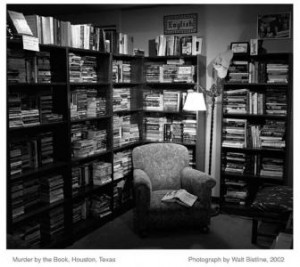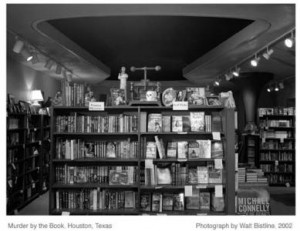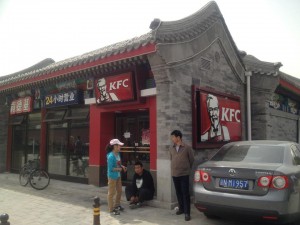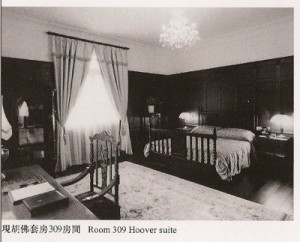Posted: May 3rd, 2012 | No Comments »
Obviously this book , A Dance with the Dragon – is of interest to me and I must admit to having had a series of chats with the author Julia Boyd over the years. I do hope the book is successful as it’s obviously a subject that fascinates me – nice job on the cover I reckon…

Julia Boyd tells the fascinating tale of the foreign community surviving in Peking between the end of the Ching Dynasty and Mao s communist revolution. It is a great story very well told – turmoil behind, turmoil ahead and turmoil all around. –Chris Patten, Chancellor of Oxford University, Chairman of the BBC and former Governor of Hong Kong
Based on a treasure-trove of original sources, this book gives an enthralling insight into the expatriate community in Peking during the half-century before the triumph of Mao. Anyone who wants to understand China’s relationship with foreigners, today as well as yesterday, should read it. –Piers Brendon, author of The Decline and Fall of the British Empire
A fascinating account sourced from many previously unpublished letters and archives. Boyd’s characters flit on the surface of the city like water beetles, unaware of the depths below. –Frances Wood, Curator of Chinese Collections, British Library, author of China’s First Emperor and His Terracotta Warriors.
With its wild, dissolute, extravagant group of fossil hunters and philosophers, diplomats, dropouts, writers and explorers, missionaries, artists and refugees, Peking s foreign community in the early 20th century was as exotic as the city itself. Always a magnet for larger than life individuals, Peking attracted characters as diverse as Reginald Johnston (tutor to the last emperor), Bertrand Russell, Pierre Loti, Rabrindranath Tagore, Sven Hedin, Peter Fleming, Wallis Simpson and Cecil Lewis. The last great capital to remain untouched by the modern world, Peking both entranced and horrified its foreign residents – the majority of whom lived cocooned inside the legation quarter, their own walled enclave, living an extraordinary high-octane party lifestyle, suffused with martinis, jazz piano and cigarettes, at the height of the Jazz Age. Ignoring the poverty outside their gates, they danced, played and squabbled among themselves, oblivious to the great political events unfolding around them and the storm clouds looming on the horizon that were to shape modern China. Others, more sensitive to Peking s cultural riches, discovered their paradise too late when it already stood on the brink of destruction. Although few in number, Peking’s expatriates were uniquely placed to chart the political upheavals – from Boxer Rebellion in 1900 to the Communist victory of 1949 that shaped modern China. Through extensive use of unpublished diaries and letters, Julia Boyd reveals the foreigner’s perceptions and reactions – their take on everyday life and the unforgettable events that occurred around them. This is a dazzling portrait of an eclectic foreign community and of China itself – a magnificent confection, never before told.
Posted: May 3rd, 2012 | No Comments »
We did it – after one week in the US – #30 on the New York Times Print Hardcover bestseller list, #19 on the E-Book bestseller list, #35 on the Combined Paperback and Hardcover bestseller list and #26 on the Combined Print and E-Book bestseller list.
Now take out the political ranters, the cancer survival memoirs, the how to achieve your life goals books and that’s not a bad showing.
Complete lists for the week here
Posted: May 2nd, 2012 | 2 Comments »
The thing about this US book tour for Midnight in Peking is that it’s basically a tour of the coolest bookstores in America!! The Poisoned Pen in Scottsdale (where I’ll be tomorrow evening May 3rd) has to be one of them too!!
More details here


Posted: May 2nd, 2012 | No Comments »
Great to see Matthias Messmer’s Jewish Wayfarers in Modern China has been published. Matthias is a Shanghailander of long standing and has long been a man always keen to tease out historical facts, track down architecture and roam the city. This book looks fascinating indeed…

Jews in China doesn’t sound like an obvious topic at first blush but Messmer has compiled an extensive, admirable and fascinating collection of vignettes of a displaced people surviving and living through the most tumultuous time in China’s history.
(A. Tom Grunfeld, Empire State College )
In the pages of this amazing and unique book men and women come alive who arrived in China for longer or shorter periods of time. Hailing from Europe and elsewhere, there were merchants and journalists, physicians and writers, adventurers and communists, and refugees from Nazi Germany. They witnessed one of the most turbulent periods in Chinese history, their lives forever affected by what they saw and experienced. In vivid portrayals the author masterfully allows us glimpses of such women as Emily Hahn and Ruth Weiss, or men like Harold Isaacs and Theodore White and how they viewed ‘their’ China. Many like Willy Tonn regretfully left the China they had come to consider their own. Others like Israel Epstein and Sidney Shapiro remained in the country which they loved and where they felt they belonged. This is a superbly stimulating book.
(Irene Eber, Louis Frieberg Professor of East Asian Studies, The Hebrew University of Jerusalem )
Review
“Jews in China doesn’t sound like an obvious topic at first blush but Messmer has compiled an extensive, admirable and fascinating collection of vignettes of a displaced people surviving and living through the most tumultuous time in China’s history.” —A. Tom Grunfeld, Empire State College
“In the pages of this amazing and unique book men and women come alive who arrived in China for longer or shorter periods of time. Hailing from Europe and elsewhere, there were merchants and journalists, physicians and writers, adventurers and communists, and refugees from Nazi Germany. They witnessed one of the most turbulent periods in Chinese history, their lives forever affected by what they saw and experienced. In vivid portrayals the author masterfully allows us glimpses of such women as Emily Hahn and Ruth Weiss, or men like Harold Isaacs and Theodore White and how they viewed “their” China. Many like Willy Tonn regretfully left the China they had come to consider their own. Others like Israel Epstein and Sidney Shapiro remained in the country which they loved and where they felt they belonged. This is a superbly stimulating book.” —Irene Eber, Louis Frieberg Professor of East Asian Studies, The Hebrew University of Jerusalem
About the Author
Matthias Messmer was born 1967 in St. Gallen, Switzerland. He received his M.A. in Political Science, Law and Economics (St. Gallen) and Ph.D. in Social Sciences (Konstanz). His research is focused on intercultural subjects and topics related to China and Chinese culture. Dr. Messmer is also affiliated with the University of Fribourg (Switzerland) as Senior Research Fellow and his projects include cultural documentation and criticism in the form of writing and photography. He has previously published books (in German) such as Soviet and Post-Communist Antisemitism (1997) and China–West-Eastern Encounters (2007).
Posted: May 1st, 2012 | No Comments »
I’ll be in Houston this Wednesday at the marvellously named Murder by the Book store (and I’ve never been to Texas before so obviously expecting oil, cowboys, beer, presidential assassinations, JR and all that)….the shop’s slogan by the way is ‘where a good crime is had by all’…

Wednesday, May 2 at 6:30pm, Murder by the Book presents Paul French. Paul French will sign and discuss Midnight in Peking (Penguin; $26).
2342 Bissonnet, Houston, TX 77005
In the last days of old Peking, where anything goes, can a murderer escape justice?
Peking in 1937 is a heady mix of privilege and scandal, opulence and opium dens, rumors and superstition. The Japanese are encircling the city, and the discovery of Pamela Werner’s body sends a shiver through already nervous Peking. Is it the work of a madman? One of the ruthless Japanese soldiers now surrounding the city? Or perhaps the dreaded fox spirits? With the suspect list growing and clues sparse, two detectives–one British and one Chinese–race against the clock to solve the crime before the Japanese invade and Peking as they know it is gone forever. Can they find the killer in time, before the Japanese invade?
Historian and China expert Paul French at last uncovers the truth behind this notorious murder, and offers a rare glimpse of the last days of colonial Peking.

Posted: May 1st, 2012 | 1 Comment »
First off all things Midnight in Peking in America are on the Twitter feed #whokilledpamela?
I’ll post here too occasionally but up to date reviews and events are all there…
And so I’ll do it a little plug for some of my first US reviews as they’re pretty good.
The Wall Street Journal did a blinder
The New York Post’s Required Reading column got the Neil Heywood link – I imagine this will be a theme in the coming weeks – Dead Brits in Mysterious circumstances now becoming a bit of a specialty for me!
The Seattle Post Intelligencer – I’ll be in Seattle (my first time there) at Elliot Bay Books on Monday May 7th by the way
Time‘s blog review was rather good I’m happy to say
The Cleveland Plain Dealer
Posted: April 30th, 2012 | 4 Comments »
I’m indebted to the Old China Hand and ever alert Italian Journalist in Beijing Laura Daverio for this photo. Destroy a hutong, rebuild a hutong in fake replica style and then let Colonel Sanders move in with that tradition Jingpai special sauce and then illegally park a crappy German car outside!! Oh dear!!

Posted: April 30th, 2012 | No Comments »
Not many know that the regal Astor Hotel on the banks of the Hai River in the heart of the former British Concession of Tientsin (Tianjin) was the favourite hotel of a young American mining engineer by the name of Herbert Hoover who later became the 31st President of the United States. In reality the Hoover’s only stayed in the Astor for a few weeks in 1899 but that hasn’t stopped the hotel opening a “Hoover Suite†and intimating he was President when he stayed there – not quite, Hoover wouldn’t be the Commander-in-Chief for another 30 years. Still, he did pick up a little Chinese and reportedly used it in the White House when he wanted a private conversation with his wife.

 Herbert and Lou Hoover
Herbert and Lou Hoover








